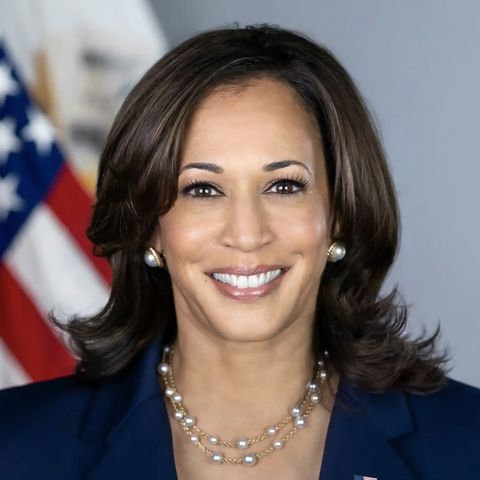Kamala Harris's Unexpected Defeat: A Call for Systemic Change in the Democratic Party

Download and listen anywhere
Download your favorite episodes and enjoy them, wherever you are! Sign up or log in now to access offline listening.
Kamala Harris's Unexpected Defeat: A Call for Systemic Change in the Democratic Party
This is an automatically generated transcript. Please note that complete accuracy is not guaranteed.
Description
After last Tuesday's presidential election results, where Kamala Harris faced an unexpected loss, the blame game has heated up among political commentators. Fans of the Democratic party have been quick...
show moreJohn Oliver, a popular television host known for his sharp political commentary, has stepped into the fray to clarify the discourse. On his show, Oliver urged his viewers not to single out figures like podcaster Joe Rogan when pinpointing the reasons behind Harris's electoral setback. While Rogan has been a controversial figure due to his wide-reaching platform and often polarizing views, Oliver emphasized the importance of focusing on broader, systemic issues within the Democratic party that may have contributed to Harris's loss.
According to political analysts, the challenges facing Harris were multilayered. A significant segment of voters expressed dissatisfaction with campaign strategies that appeared misaligned with their expectations and priorities. Critics within the party suggested that the campaign's messaging failed to robustly address pressing issues such as economic inequality, healthcare, and climate change. Additionally, there have been concerns over the party's ability to galvanize younger voters, a demographic that is crucial for any Democratic win.
Harris's defeat also reignited discussions about the party's internal dynamics, especially relating to its approach to diversity and inclusion. As the first woman of color to run on a major party's presidential ticket, Harris represented a beacon of progress for many. However, some analysts argue that the party's outreach was inadequate, missing opportunities to engage with and energize a more diverse electorate. This has fueled arguments over whether the Democratic party needs to undertake significant structural changes to better reflect the changing demographics and values of the American populace.
Amid these discussions, figures like John Oliver advocate for a more nuanced understanding of electoral outcomes, urging both the public and political operatives to look beyond individual personalities or media scapegoats. Instead, he promotes a reevaluation of how campaigns are designed to resonate with voters' concerns and aspirations.
In the aftermath of the election, the Democratic party stands at a crossroads. The need to reassess strategies, messaging, and voter outreach programs has become evident as they prepare for future elections. For many, this is a pivotal moment to bridge the disconnect between party leadership and grassroots supporters to build a stronger and more unified front.
The conversation about Kamala Harris's loss is not solely about what went wrong but also about paving a pathway forward. As the discussions unfold, there is a growing recognition that nuanced critiques and constructive dialogues are essential in shaping a viable future, one that resonates with an increasingly diverse and complex electorate. The coming months will likely be a testament to how readily the Democratic party can adapt to these lessons and redefine its trajectory in American politics.
Information
| Author | QP-4 |
| Organization | William Corbin |
| Website | - |
| Tags |
Copyright 2024 - Spreaker Inc. an iHeartMedia Company

Comments